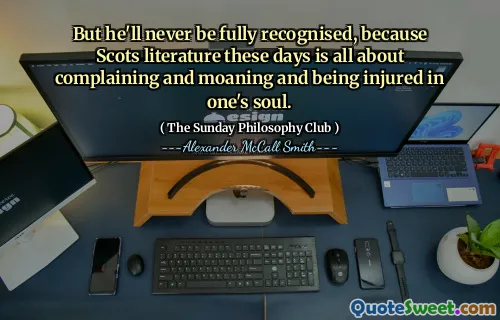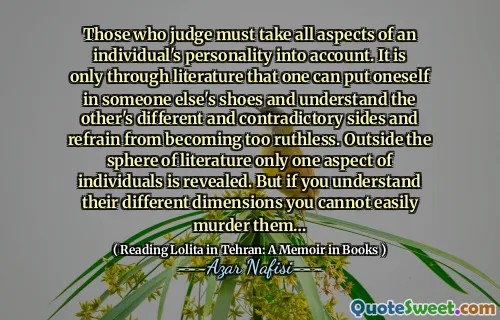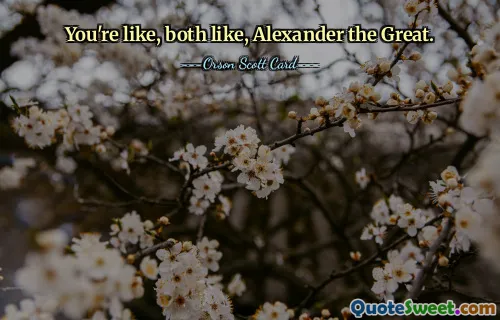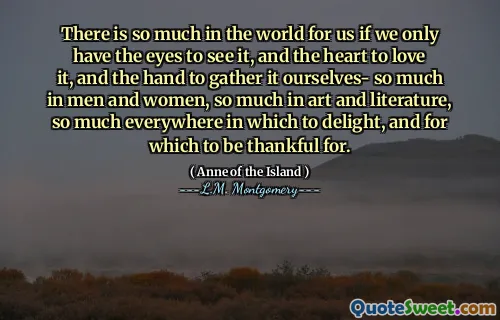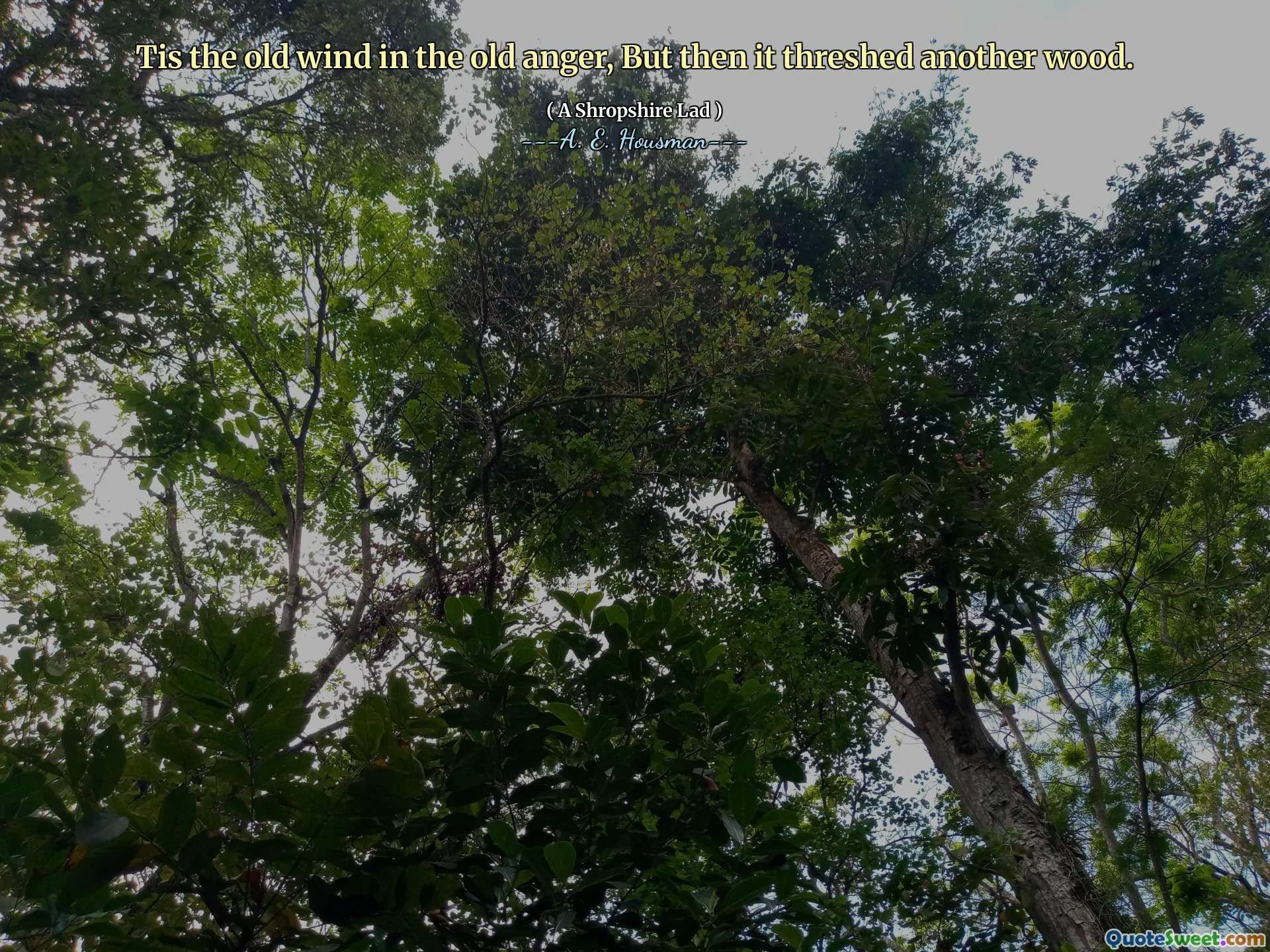
Tis the old wind in the old anger, But then it threshed another wood.
This quote vividly captures the persistent, sometimes wild nature of human emotions and the recurring patterns that shape our experiences. The phrase "old wind in the old anger" evokes an image of recurring fury or turmoil that has been present for a long time, possibly symbolizing grievances, passions, or conflicts that have persisted over the years. It is as if the wind, a metaphor for change or external influences, carries with it the echoes of pastanger, fueling ongoing emotional storms. Yet, amidst this enduring anger, the line "But then it threshed another wood" suggests a shift or a different course—perhaps an act of change or intervention that disrupts the cycle. The imagery of threshed wood hints at harvest, labor, and transformation, symbolizing a move toward renewal or a new beginning amidst lingering frustrations. This interplay between constancy and change invites reflection on how human emotions are deeply rooted yet often subject to transformation by new circumstances or choices. It reminds us that even deeply ingrained sentiments like anger carry the potential for renewal, growth, and new directions. The metaphorical language invites us to consider the cycles within ourselves—the moments when old wounds or frustrations are stirred anew—yet also offers hope that change is possible. Life is a constant weaving of storms and calm, anger and forgiveness, destruction and creation, all contributing to the ongoing story of personal and collective growth.

